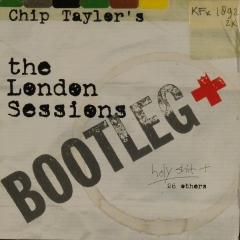Mastering Music: Proven Practice Techniques for Every Musician
As a teacher, I'm constantly begging my students to practice regularly and efficiently. I always tell them that it's not the length of time they practice but the quality of time. It's better to practice for 25 minutes a day, than for three hours on one day of the week. In my opinion, the best bang for the buck is to cycle or loop difficult sections of music or lesson material when practicing. This is sometimes really boring for the student, but I'm telling you it always works.
Developing effective practice techniques is essential for musicians aiming to enhance their skills and reach their full potential. By employing strategies backed by research and the experience of successful musicians, you can optimize your practice sessions to learn faster and perform better.
Mental Practice Techniques
Mental practice is a powerful technique that allows musicians to rehearse music in their minds without physically playing their instruments. You can always spot the drummer at the grocery store playing air drums! Well, research shows that mental practice activates similar brain regions as physical practice and can lead to significant improvements in performance. To engage in mental practice, start by calming your mind (that’s a tall order!) and imagining yourself in your practice environment. Vividly envision yourself playing through pieces, hearing every note and feeling the corresponding movements. If you make a mistake, pause and rewind, fixing the error before proceeding. Regularly incorporating mental practice can help reinforce memory, solve technical problems, and prepare for performances. You can practice mentally anywhere—whether on a walk, traveling, or whenever your instrument isn't available.
Mental practice is a valuable tool for musicians of all levels to enhance their skills and artistry. As a kid, my first teacher would always talk about mental practice. I was like, “WTH?”
Effective Use of Audiation
Audiation, the ability to hear and comprehend music in your mind, is a crucial skill for musicians to develop. By strengthening your audiation skills, you can better understand the music you're learning, memorize pieces more effectively, and even compose or improvise. To practice audiation, start by singing simple melodies in your mind, gradually increasing the complexity. Guys - some of us know this as ear training. We all do it, but I feel it’s great to actually practice and improve upon this. As you learn new pieces, take time to study the score away from your instrument, hearing each note and harmony internally. Regularly engaging in ear training exercises, such as interval recognition and sight-singing, can also enhance your audiation abilities. With consistent practice, you'll find that your musical understanding, memory, and creativity all improve as a result of effective audiation.
Incorporating Varied Practice
Incorporating varied practice techniques is a highly effective way to deepen your learning and prevent stagnation in your musical development. Varied practice involves approaching a piece or passage from diverse angles, such as practicing hands separately and together, vocalizing rhythms, modifying tempos, and using different articulations. By mixing up your practice methods, you cultivate greater control and a broader understanding of the music, forming multiple neural connections that enable you to perform securely even under pressure. Interleaving practice tasks within a session by alternating between different pieces or sections is another beneficial strategy that strengthens memory and allows for frequent revisiting of material. Combining varied and interleaved practice keeps you engaged, addresses specific weaknesses, and leads to more efficient, secure learning.
Benefits of Practice Looping
Looping, or cycling, the practice of repeating a short section of music multiple times, can be a highly beneficial technique for mastering challenging passages and developing muscle memory. By focusing on a specific phrase or measure and playing it repeatedly, you give your brain and body more opportunities to learn the correct movements and reinforce the neural pathways involved. This repetition helps ingrain the music deeply, allowing you to play with greater accuracy and automaticity. Looping also enables you to isolate problem spots and give them the extra attention they require without constantly starting from the beginning of the piece. When looping, aim for mindful, deliberate repetitions with a specific goal in mind, such as correcting fingering or improving tone. Incorporate breaks or variations intermittently to maintain focus and prevent mindless practice. With consistent, targeted looping, you'll find that difficult sections become more manageable and your overall performance becomes more secure and polished.
Effective Practice Pays Off
Incorporating effective practice techniques is essential for musicians striving to reach their full potential. By employing strategies such as mental practice, audiation, varied and interleaved practice, and looping, you can optimize your learning and achieve greater mastery of your instrument. Consistently applying these techniques will lead to improved memory, technical facility, musical understanding, and confidence in performance. As you continue on your musical journey, remain open to exploring new practice methods and refining your approach based on your individual needs and goals. With dedication, mindfulness, and a commitment to effective practice, you'll unlock your true potential as a musician and experience the joy of sharing your artistry with others.
Sources
Bulletproof Musician - Mental Practice and its Benefits: Bulletproof Musician
The Musician’s Way - Varied Practice Techniques: The Musician’s Way
Your Thought Partner - Effective Use of Audiation: Your Thought Partner
#MusicPractice #MusicianTips #PracticeTechniques


